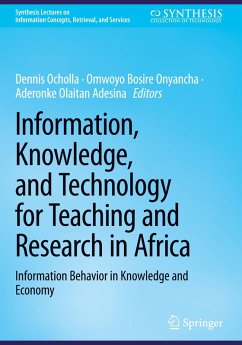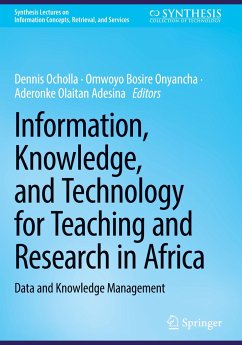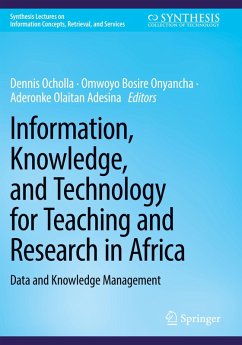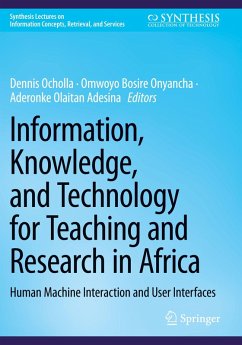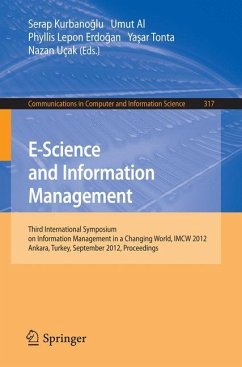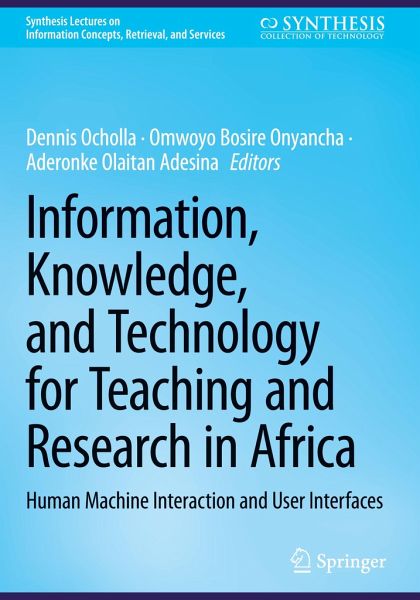
Information, Knowledge, and Technology for Teaching and Research in Africa
Human Machine Interaction and User Interfaces
Herausgegeben: Ocholla, Dennis; Onyancha, Omwoyo Bosire; Adesina, Aderonke Olaitan

PAYBACK Punkte
17 °P sammeln!
This book focuses on human machine interaction and user interfaces for teaching and research in Africa. The importance of digital humanities (DH) is recognized by focusing on the theoretical and historical development of DH in the context of LIS education and how infrastructure influences DH programs/initiatives in respective LIS schools. These findings and recommendations provide valuable knowledge for developing the domain and establishing potential areas of collaboration in DH research and curriculum. The book explores and explicates what the Diffusion of Innovations theory is about as well...
This book focuses on human machine interaction and user interfaces for teaching and research in Africa. The importance of digital humanities (DH) is recognized by focusing on the theoretical and historical development of DH in the context of LIS education and how infrastructure influences DH programs/initiatives in respective LIS schools. These findings and recommendations provide valuable knowledge for developing the domain and establishing potential areas of collaboration in DH research and curriculum. The book explores and explicates what the Diffusion of Innovations theory is about as well as the characteristics of innovators. The Diffusion of Innovations theory is relevant to the LIS field, which has widely adopted numerous innovations to automate a wide range of administrative and technical processes, build databases and networks, and provide better services to library users. The diffusion and adoption of technology have become imperative for the efficient management ofmodern libraries and LIS as a field in general. Existing literature that is related to the adoption, use, and challenges facing the development of clinical informatics in teaching hospitals in developing countries is reviewed. It is also revealed that hospitals in developing countries should embrace the use of tools for effective healthcare delivery and that nursing informatics is very significant in nursing practice. In addition, the role of academic institutions and the use of information and communication technologies (ICTs) by librarians for information and knowledge (IKM) in such institutions in the Fourth Industrial Revolution (4IR) is addressed. The book acknowledges the marginalization of indigenous knowledge and that there is a need for Africa to develop and accelerate strategies for enhancing indigenous knowledge for future generation and ICT is poised to play a crucial role.



